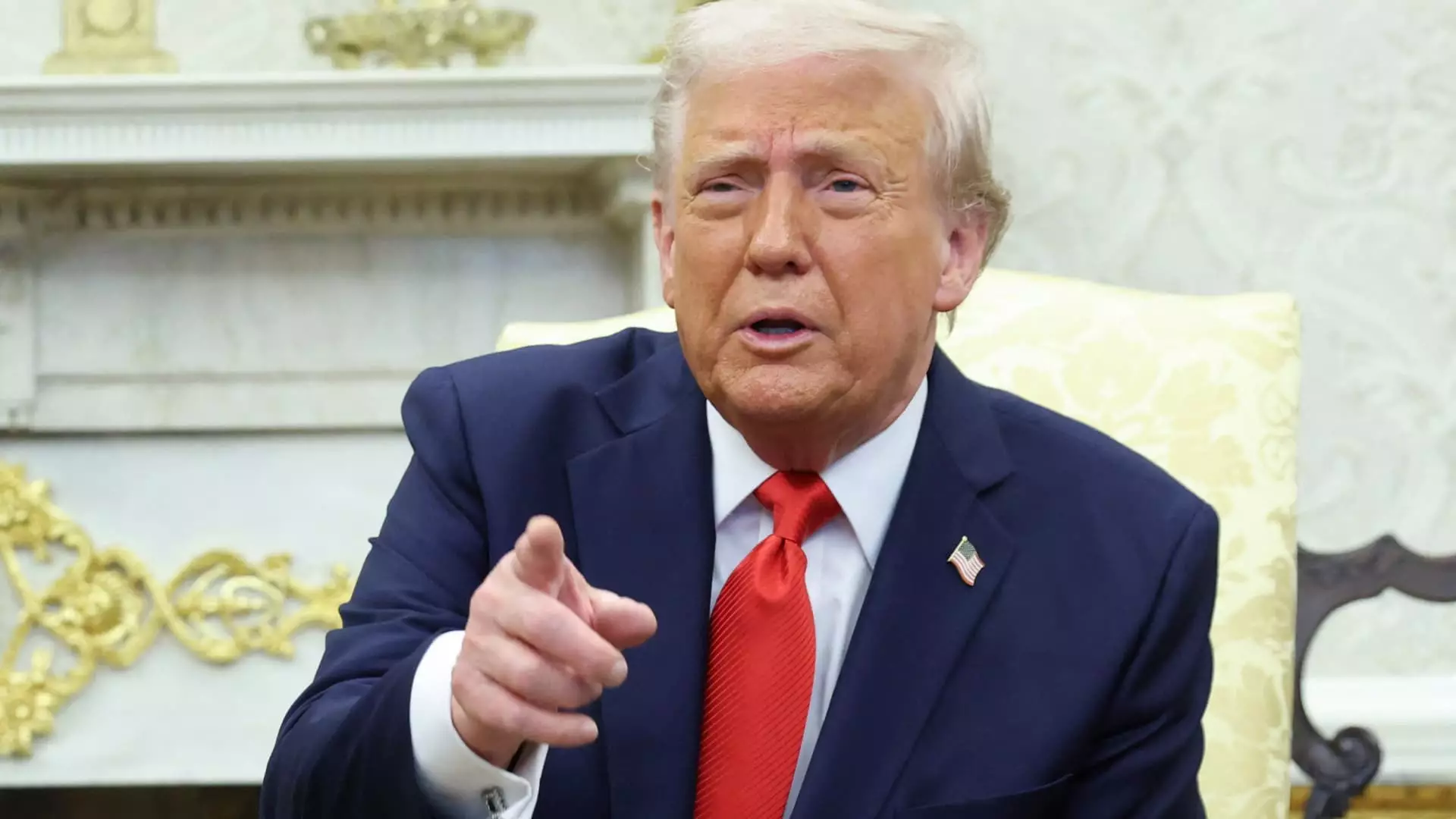In a surprising turn of events, shares of major automakers surged following President Donald Trump’s optimistic statements regarding assistance for car manufacturers. Despite the political backlash Trump often faces, his recent remarks seemed to buoy investor confidence. He highlighted the challenges automakers encounter in transitioning their supply chains back to the United States, a process that, as he noted, would require “a little bit of time.” In an age where volatility reigns supreme in the market, could this be a rare moment where political intervention is perceived as beneficial, at least in the short term?
The Tariff Dilemma
Even with Trump’s soothing words, let’s not forget the undercurrent of tension rooted in his administration’s previous decisions—specifically, the imposition of a hefty 25% tariff on imported vehicles. While such tariffs are designed to protect American jobs, they can also backfire spectacularly. By creating an artificially inflated market for domestic automakers, these tariffs may inadvertently stifle innovation and competitiveness. Such seems to be the case for family names like Toyota and Honda, which, lesser impacted, continue to edge into positive territory but struggle to find their footing.
It’s clear that while Trump’s intentions might come with the aura of goodwill, they mask the larger narrative of a complicated global economy. This undercuts the notion that his intervention is purely beneficial. For every automaker that celebrates a jump in stock prices, one must consider the opportunity cost—will consumers ultimately bear the brunt of these tariffs in the form of increased prices?
Automakers: Caught in a Crossfire
While Trump aims to reassure companies like Ford and General Motors, the reality for manufacturers is far more nuanced. Firms must navigate a conundrum: adjust to new supply chain demands while remaining competitive on a global scale. Firms like Hyundai are attempting to soften the blow on consumers by holding prices steady for a couple of months, indicating a significant consumer concern. In contrast, others like Jaguar Land Rover have opted to cease shipments altogether, showing how dire the situation can become under protective policies that may not always yield the desired outcomes.
The President’s comments suggest a push for optimism, yet they ring hollow when strung alongside the fallout from tariffs. Investment strategies in the auto sector today require more than just a knee-jerk reaction to the stock market’s fluctuations; they necessitate a deeper analysis of the implications of these policies.
Are We Reverting to Old Patterns?
It’s tempting to view Trump’s actions as a return to a bygone era of American industrial might, but with that nostalgia comes the risk of repeating historical mistakes. The key takeaway here is that action should not be confused with genuine solutions. The temporary spikes in stock prices may be a false dawn, veiling a deeper malaise that the industry could face if restrictive policies persist.
As we scrutinize Trump’s role in the automotive realm, one must also ponder whether this brief optimism can spark a more sustainable, long-term growth strategy. Encouragingly, the American auto industry is resilient and has weathered numerous storms. The pivotal question revolves around whether it can reinvent itself without being hindered by unnecessary tariffs and regulatory shackles. Let’s hope for the sector’s sake that we can strike a balance between patriotic economics and genuine global competitiveness.

